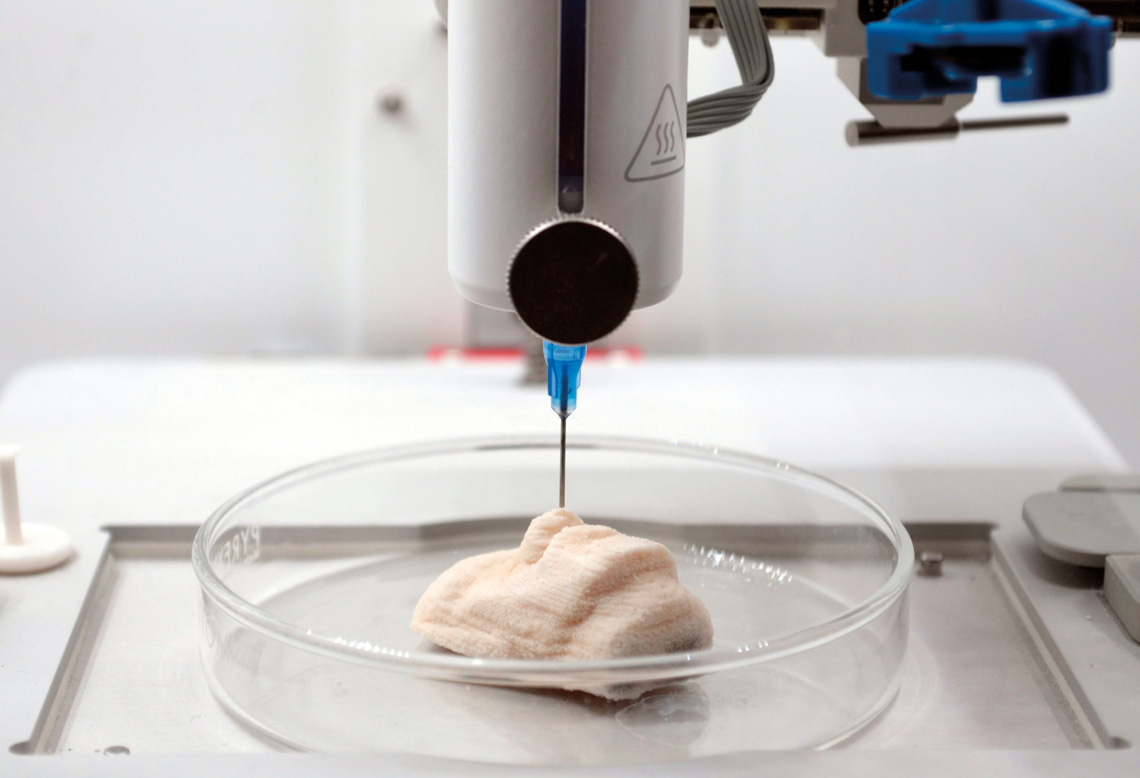Researchers at the École polytechnique fédérale de Lausanne (EPFL) in Switzerland announced a method for 3D printing with an ink that contains calcium carbonate–producing bacteria. Tough but light, the 3D-printed mineralized composite can be injected directly into a mold or into a crack in a statue. When exposed to a urea solution, the bacteria Sporosarcina pasteurii trigger a mineralization process that produces calcium carbonate (CaCO3). The ink, dubbed BactoInk, mineralizes within a few days without shrinking like many other materials used in art restoration. The final compound does not contain live bacteria, because it is submerged in ethanol at the end of the mineralization process. The mechanical properties of the biocomposite mimic those of bones, which could make it interesting for future biomedical applications (Materials Today, February 18; EPFL News, February 23).
RepublishRestoration
Bacterial ink for works of art

Tough but light mineralized composite could be useful in art restoration
EPFL